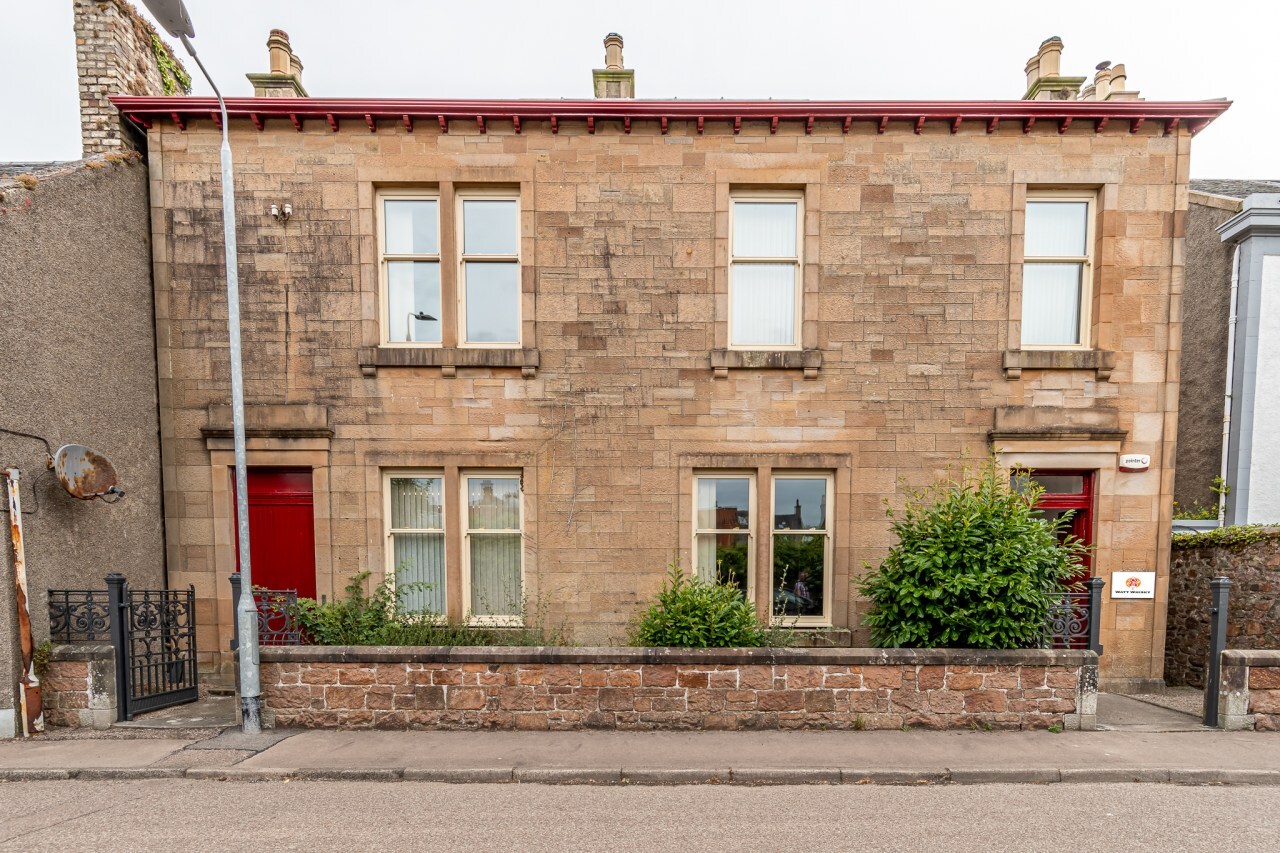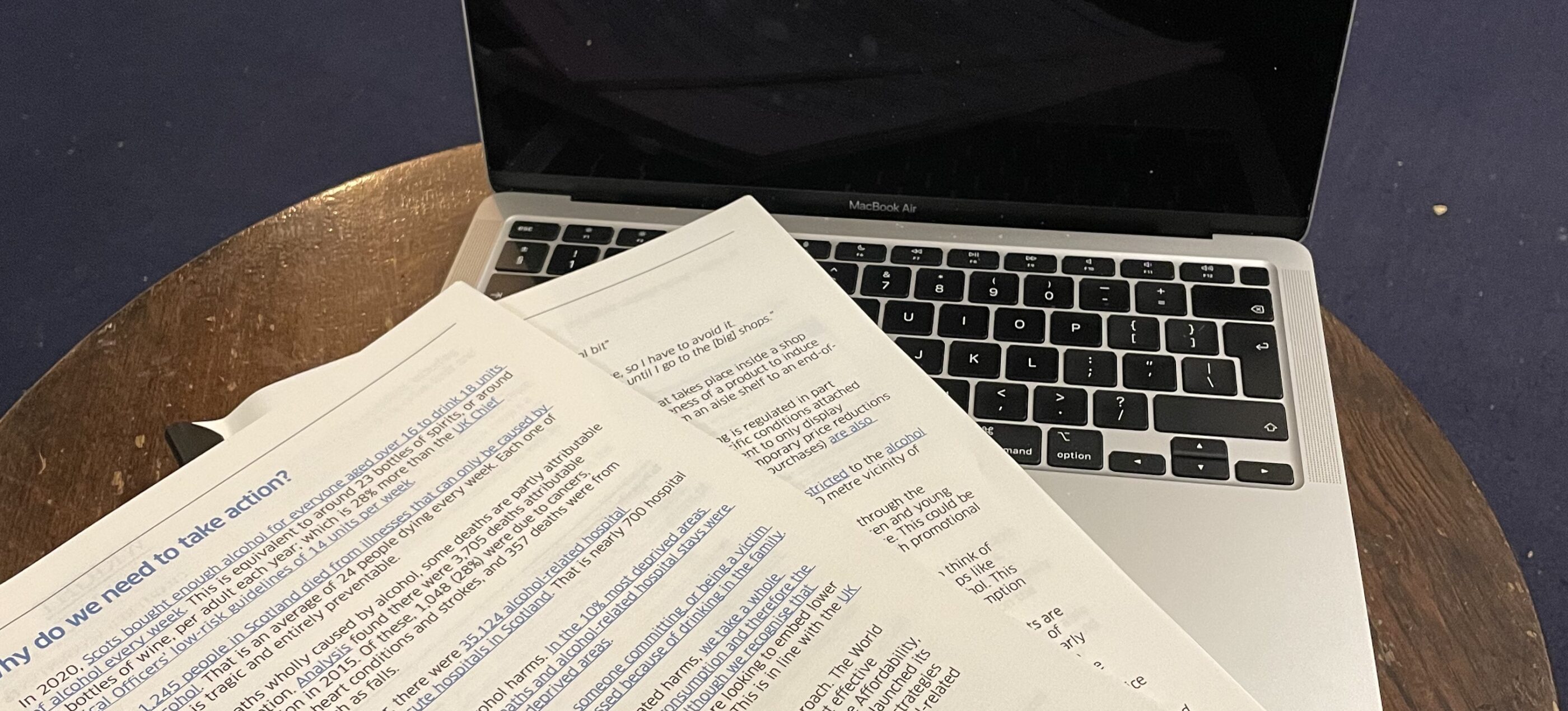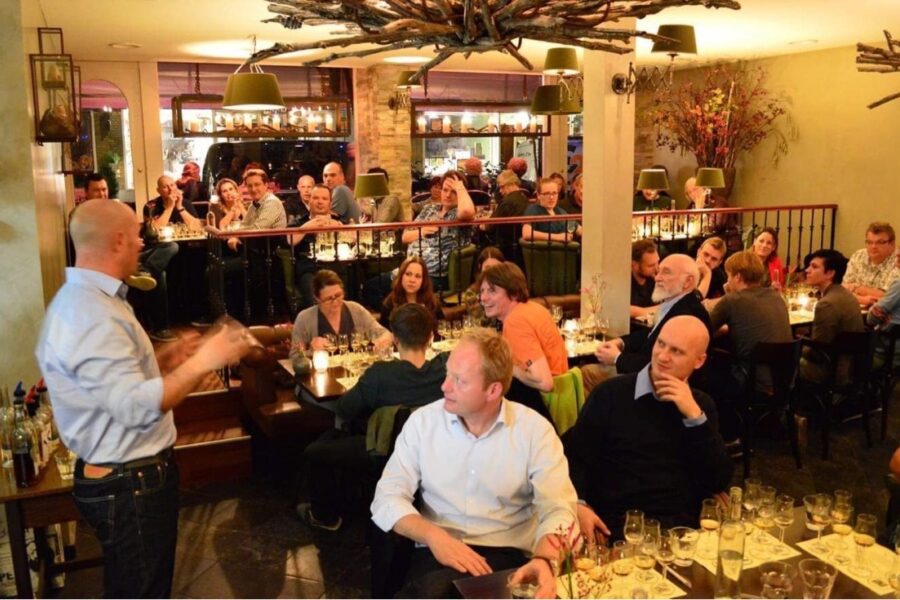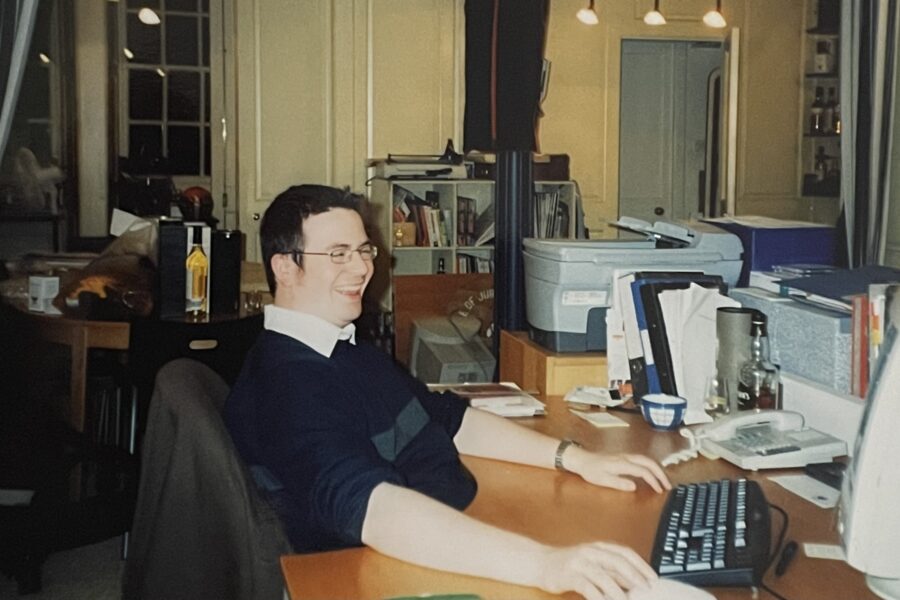Consultation on Restricting Alcohol Advertising and Promotion - Going beyond the Clickbait!
“Without branding and other marketing strategies, alcohol products in each beverage sub-sector are essentially variations of the same thing”
This one sentence from a 64 page Scottish Government Consultation on Restricting Alcohol Advertising and Promotion has generated outrage on social media and huge amounts of click bait type articles and posts. But why? It’s true. And before I’m hung, drawn and quartered for daring to agree with this controversial statement, let me explain; it’s not saying that whisky is the same as vodka or that all whisky tastes exactly the same. It is saying that in the most basic sense (which is what essentially means) all single malts are variations of the same thing. Not exactly the same (which I’ve seen quoted too many times to mention) but variations. Which they are. By necessity. All single malt scotch whiskies must be produced according to the Scotch Whisky Regulations so while there is room for, often quite substantial, differences (or variations) in production methods, wood policy, product development, etc they are all made from 100% malted barley, mashed and fermented, distilled in copper pot stills and then matured in oak casks. So yes, they are variations of the same thing. And if you go back to the same basic level I’m sure the same could be said for most other alcohol product sub-categories. Key word here being sub-category.
The main point to all the online ranting and raving seems to be that the Scottish Government has no clue about the scotch whisky industry and how can they possibly legislate on the marketing of alcohol when they clearly don’t understand the sector.
Let’s be clear here. This is a consultation document. We are a long way from any of this being actual legislation. Also, it’s not as if Nicola Sturgeon and all the MSPs have written this themselves. This has been written by a civil servant (or team of them) in Edinburgh following a brief from their boss (probably a senior civil servant). They are not necessarily going to have in depth knowledge of the scotch whisky industry. Or indeed the gin, beer, advertising, events, tourism, hospitality industries, all of whom could be equally affected by the proposals. Nor can they be expected to. This is where we come in. Anyone who is going to be affected by any of the proposals contained in this consultation has to actually read the document for themselves (not just foam at the mouths because they’ve read some incendiary headline online) and respond to it. Not in a ranty way, but in a rational one. Explain what your business does, where you are, how you operate, and how the proposals will affect you, your business and your local area. Hopefully if enough people respond, and give reasoned arguments (or supporting evidence) for their concerns, then the civil servants collating the responses will feed that back to the MSPs and the FM in their recommendations once the consultation ends*. Hopefully. It’s certainly more constructive than focussing on one slightly controversial sentence which doesn’t actually affect any of the policy proposals anyway.
Incidentally that particular sentence is in section 1 (paragraph 1.12) out of 17. Makes me wonder how many people have actually read to the end. It’s quite a slog. But get get past the ‘wail wail, how can they possibly think all whisky is the same’ and there are other paragraphs that give much more cause for concern;
Paragraph 6.14 Events Sponsorship. “It is therefore also worth considering alcohol sponsorship of non-sporting events and whether this should be an area of potential restriction.” I think we can all see (even if we don’t necessarily agree with) the rationale behind restricting alcohol sponsorship of sporting events and large scale, highly visible non-sporting events. But what about local and community events? Just in our local area three of the nights at the Mull of Kintyre Music Festival are sponsored by local distilleries, there is the annual Springbank Piping Invitational and most community events feature at least one bottle from the local booze companies as a raffle prize. When we lived in Speyside, both the Dufftown and Aberlour Highland games were (and I presume still are) sponsored by the local distillery. Would these come under ‘events sponsorship’? I don’t know. Whoever wrote the consultation document probably hasn’t even considered it. So let’s ask them. I mean, we’re not going to get a personal reply but maybe it’ll be considered when it comes to the legislation stage.
Paragraph 7.2 Outdoor and public spaces marketing “Outdoor advertising includes billboards, both digital and paper, as well as posters or signs”. We’ve got a sign outside our office - would that be included? What about distillery signs? Or posters advertising a whisky tasting in the local shop? Or signage to a booze related event? There was mention that the restrictions could only apply to places near schools, leisure centres etc. That’s all well and good but in Campbeltown everywhere is near a school, or a nursery or a leisure centre! In fact, thanks to google maps I can tell you that every pub, booze shop, indie bottler and distillery in Campbeltown is within a maximum of 650m of one of those places. Does that mean none of us can have signs outside our business? Or advertise the Campbeltown Malts Festival? Hopefully not. But again, the people writing this consultation have probably never been to Campbeltown. Or many other rural areas of Scotland. So tell them about it. Explain how many tourists come to the area to visit the very brands that they are considering restricting.

Paragraph 8.8 Window Displays “…This would prohibit window displays from being included within the permitted alcohol display area, which would reduce the visibility of alcohol from outside the shop itself..’. So what’s the solution for shops that only sell alcohol - blacked out windows? That would look good wouldn’t it? More seedy sex district than tourist hotspot. So send a photo of your local high street with its speciality booze shop (or shops) or local pub with its traditional frontage sign painted with ‘beers, wines, spirits’ and then ask them to think how that would look with blacked out windows.
Paragraph 9.6 Brand Sharing & Merchandise “One way we could seek to reduce the visibility of alcohol brands would be to prohibit the sale or distribution of alcohol branded merchandise including t-shirts, jackets and caps as well as branded glasses and mugs” That would fair narrow the options in visitor centres and brand home shops wouldn’t it? Might even encourage people to buy alcohol instead to show their support for their favourite brand. Don’t think that’ll have been considered as an outcome so let’s point it out. Also, what about employees and brand owners? Does that mean Mark and I wouldn’t be able to wear Watt Whisky t-shirts anymore? I hope not or we’re going to have to buy a whole new wardrobe!
And don’t get me started on Paragraph 11, Online Marketing. The only brand visibility we get is online so if we’re not able to promote ourselves on socials or share good reviews then we’re pretty screwed. Fortunately it mainly seems to focus on paid online advertising which we don’t do cause we’re too cheap and the concern in 11.12 that ‘High quality posts advertise the product/s sold and show the alcoholic drink being consumed in desirable locations or contexts..’. Think we should be safe on that front! Again though, let’s seek clarification about what online marketing actually entails. Are online tastings included? What about advertising a whisky festival? Surely as far as online marketing is concerned it’s up to the social media companies to regulate this and ensure booze marketing is only reaching its intended target?
All these points, I would argue, have way more important and far-reaching implications than whether the Scottish Government fully appreciates the nuance and workmanship that goes into producing the myriad different single malts in Scotland (even though they are all essentially variations of the same thing!)
So please, whether you’re in the booze trade, hospitality, tourism, retail, run a community group or event that relies on support (publicised or not) from the booze or hospitality trade or are just an interested individual, read the consultation, decide which bits are important to you, and send in a (non-ranty) response. If enough of us do it, it might just make a difference.
* My understanding of how the consultation process works comes from my brother who is a senior policy advisor in New Zealand. I assume our bureaucratic process is fairly similar but if not, blame Col.



